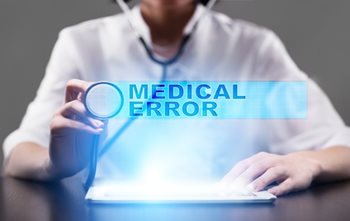Sign in or register for an account.

Prevention and Management of Medical Errors
Medical errors contribute to millions of injuries, deaths, excessive cost, and unnecessary suffering each year. The need for understanding the management and prevention of medical errors has never been greater. This instructional course has been designed to describe the scope of these preventable mistakes, and ways in which the healthcare system can identify them and ensure that they don’t continue to occur. Reporting and tracking of certain medical errors is required, some by state law and others to maintain accreditation for payor reimbursement. Additionally, some state professional Boards, such as the Florida Board of Nursing, require continuing education on this subject. This 2-hour medical error CNE course fulfills this professional Board requirement.
Questions? Check out our FAQs page and How Online IV Certification Works!
Objectives
Upon completion of this course, the participant will be able to:
- Define medical error, adverse event, “never event” and sentinel event.
- Discuss the scope of medical errors in the United States in terms of monetary cost and lives affected.
- Explain at least two system analysis models.
- Discuss national/state mandatory error reporting requirements.
- List at least 5 types of medical errors and their causes.
- Describe SBAR.
- Recognize appropriate and inappropriate documentation.
Curriculum
Chapter 1: Introduction
- Definitions
- Scope of the Problem
- History
Chapter 2: Risk Management Interventions
- Systems Analysis
- The Swiss Cheese Model
- Cognitive Behavior Theory
- Retrospective and Prospective Analysis
- Root Cause Analysis
- Failure Modes Effect Analysis
- Reporting
- Sentinel Events
- State Requirements
Chapter 3: Common Medical Errors
- Diagnostic Errors
- Medication Errors
- Improper Dose
- Look alike/Sound-alike Drugs
- Incorrect Route of Administration
- Surgical Errors
- Medical Device and Equipment Errors
- Healthcare-Associated Infections
- Falls
Chapter 4: Communication and Documentation
- SBAR
- Documentation Recommendations
Chapter 5: References
- California Bill 241
- Implicit Bias in Healthcare
- What is Implicit Bias?
- Implications of Implicit Bias in Healthcare
- How to Reduce Implicit Bias
Price: $24.00
Contact Hours: 2

Course Author

Pamela Clark
Pamela Clark, CRNI, is an infusion nurse with the Houston Methodist Sugar Land Hospital. She has more than 35 years of experience in infusion therapy and infusion education with both licensed nurses and patients. Her experience spans multiple infusion settings including: acute care, long-term care, home infusion, and ambulatory infusion care. She also has experience in oncology and oncology research.
Read Full BioCourse Accreditation
See our Accreditation Statements page to view our accreditation information.